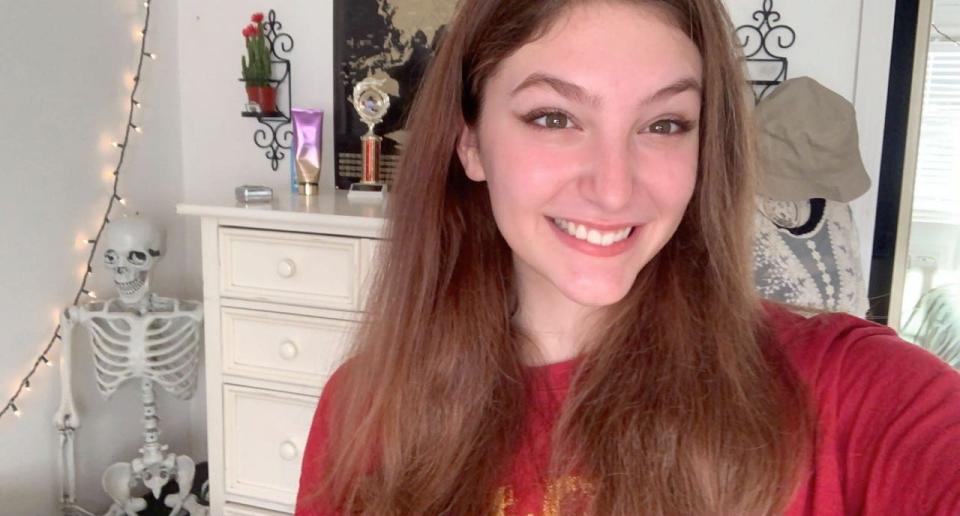When does self confidence become toxic? Why it's time to rethink our beauty standards
For decades, social media influencers, feminist scholars and cosmetics companies alike have asked, “How can we facilitate a person’s confidence in their body?” In response, I ask, “What value is there in physical confidence, and what reason is there to strive for it at all?”
In a Teen Takes survey, responders nearly unanimously agreed that social media not only values and rewards physical beauty, but in doing so acts as a detriment to the average person’s confidence.
The correlation between social media and low self-esteem has been well-documented in the past few years, prompting campaigns that advocate for self-acceptance. Corporations have done their part to make their beauty and fashion items marketable to everyone. For instance, “Campaign for Real Beauty” initiated in 2004 by Dove sought to transform physical appearance from a source of anxiety to a source of confidence.

While met with criticism on the basis that the movement was a continuation of the age-old marketing scheme suggesting that the consumer could “buy confidence,” the message was nonetheless received positively on social media.
Setting out to increase confidence seems on the surface a well-enough intentioned pursuit, but the underlying assumptions are more sinister upon inspection.
In an ideal world, people of all varieties are secure in their physical appearance, unaffected by the ideals and criticisms of others. Unfortunately, this approach is not compatible with consumption standards; if we are all beautiful just as we come, products that promise to heighten our confidence (to elevate us to the beauty standard) would not sell.
More from Summer: What the Russia-Ukraine conflict can teach us about diplomacy in the age of social media
More from Teen Takes: In an age of media overload, here's how to start thinking for yourself
“Beauty” itself is a profit generator on social media — it is no surprise that content featuring conventionally attractive subjects received more views and likes, and subsequently more profit. TikTok’s algorithm, for example, rates a user’s attractiveness on a scale from 1 to 5 using facial recognition software, and promotes videos featuring users that rate high on that scale. Meanwhile, user-generated trends attempt futilely to boost confidence by urging users to make videos lip-syncing to a 15-second melody, showcasing their side profiles — and the algorithm deems who is worthy of appraisal for it.
Not only is all-encompassing physical confidence incompatible with social media platforms on the algorithmic level, but it perpetuates the unhealthy perception of beauty as valuable above nearly all else. Consciously or not, proclaiming that “everyone is beautiful” assumes that beauty is important, something to aspire towards.
This value creates the ideal atmosphere for targeted marketing at insecure women chasing the golden standard. Even an inclusive notion of beauty is inherently violent; to be beautiful is to reign aesthetically supreme, which is antithetical to inclusivity. In other words, if everyone were beautiful, beauty would cease to exist, and vanished would be the opportunity to capitalize off the desire for beauty.
One might assume that physical beauty, if so desired by “objects-of” and their surveyors, is a valuable means to a satisfying end, but this is resoundingly unlikely. Andrea Dworkin, a prominent feminist author of the late 20th century, wrote on beauty: “Female knowledge of objectification usually stops at a necessary but superficial understanding: beauty is rewarded and lack of beauty is punished.” She continues to issue the point that the analysis does not go far enough; that beauty in women is similarly punished, through objectification and accusations of vanity.
This isn’t to say the desire to be beautiful serves no purpose at all; rather, it serves the interests of the survival instinct of an organism, which does not necessarily align with its overall well-being. To place stock in the value of beauty is as harmonious with the principles of the proliferation of human life as eating and breathing — but in an age when child-bearing is not considered the end-all goal of life, the instinct faces scrutiny.
The questions mentioned above have no easy or objectively correct answers. To breach the subject is difficult; one runs the risk of imparting shame on women for partaking in an indoctrinated process.
Nevertheless, it is essential to analyze the values that grip our culture, their origins, and executions — and a second look at beauty is long overdue.

Summer Roberts is a senior at Bordentown Regional High School. She's lead editor for the student newspaper club and a member of the debate club, mock trial and model United Nations. She writes about worldly affairs, cultural phenomena, and the relationships between them.
This article originally appeared on Cherry Hill Courier-Post: Outdated beauty standards harmful to women and young girls

